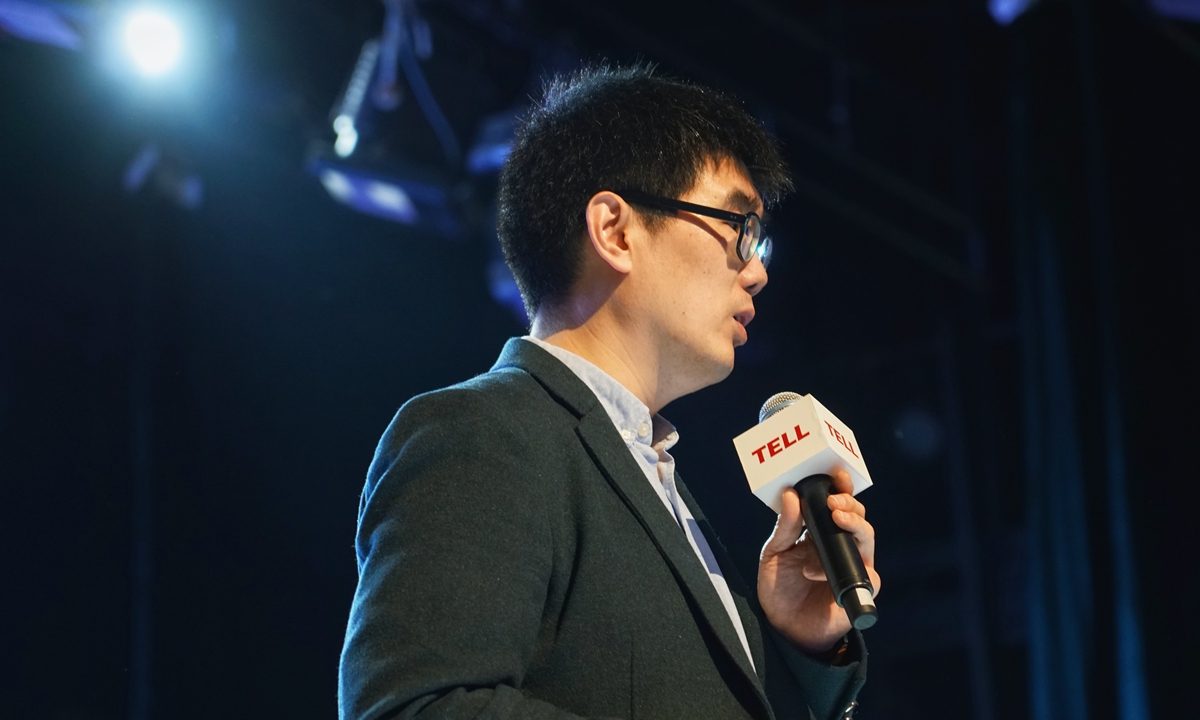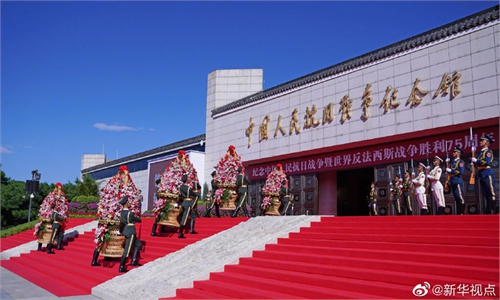Perseverance, forgiveness greatest legacy against Japanese invasion: social media war livestreamer

Jiang Tao, operator of the war livestreaming Sina Weibo account
"Perseverance, thinking and forgiveness" are the three greatest legacies for today's generation to carry foward, and the best way to commemorate the hard-won victory of the War of the Chinese People's Resistance against Japanese Aggression (1931-45), said Jiang Tao, the man who ran an online account that documents the progress of the war for eight years in an "on this day in history" fashion, on Thursday marking the 75th anniversary of China's victory.
Jiang, a Shanghai resident born in the 1970s, together with two fellow Shanghai Jiaotong University schoolmates, has made over 3,500 posts, documenting not only the battles that Chinese soldiers fought in, but also nearly every aspect of the Chinese society and key developments in the world during World War II.
Japan attacked China on July 7, 1937, and Jiang started to post "What was going on the day" on July 7, 2012, and his marathon posts concluded on Wednesday, which was on Japan's surrender aboard the US battleship USS Missouri anchored in Tokyo Bay on September 2, 1945.
Eight years of war is painful yet a blurred memory for most of us, which made me ponder on re-visiting history with daily posts on social media, and by doing so, I wanted to feel the period in a more personal way, and better understand how Chinese martyrs felt during that dark page of Chinese history, Jiang told the Global Times in an exclusive interview on Thursday.
A strong sense of humiliation still burns in him, Jiang said, reflecting upon the words he wrote in posts, and a sea of documents he went through.
Only seven decades ago, foreign military units and operations were still recklessly moving around on Chinese soil without having to be approved by the then Chinese government. What a huge humiliation for a sovereign country, he said, citing an incident when a US warship was heavily assualted by the Japanese military in the Yangtze River, and the then government of the Republic of China could only protest such Japanese aggression.
Jiang hopes his Sina Weibo account could serve as a reminder of the past, of the sense of humiliation.
It is ironic to hear people now brag about their fancy residences in so-called foreign concession areas in Shanghai, and China only reclaimed the rule of these spots in 1943 through perseverance, Jiang said. Jiang's Weibo account, which goes by zhibokangzhan [livestreaming the war against Japanese aggression] is now being followed by over 2 million people, and each post attracts thousands of likes. There was a time when few noticed what he was doing.
Although Jiang said he does not care about his posts being "liked" online, he hopes his story proves that everyone can persevere, "just like our forefathers did in the war," Jiang said.
To Jiang, after the end of World War II, the world is now in a war of reason, where Chinese people's fight for justice with a global perspective continues. To win such a war, perseverance, thinking and forgiveness - the legacies our forefathers passed on to us - matter the most.
Without strategic thinking, Chinese army could not have won the war against Japanese agreession, and it was the painstaking pondering that made them persevere through adversities and willing to sacrifice their lives for the noble cause of peace, Jiang said.
Forgiveness is a valuable virtue. Even during wartime, China never abused Japanese prisoners. And such virtue could bridge the two peoples and lead to a friendly exchange.
Just as Jiang wrote on August 15, which marked the 75th anniversary of Japan's unconditional surrender in World War II, the posts are not meant to instigate hatred or any other negative sentiment, but to remind people of the forgotten past in a measured way.
"It serves to remind people how our forefathers put aside disagreements and fought against a common foe, and the fear, humiliation, and adversity they had suffered from. Only when we witness how they walked toward death and sacrificed their lives for the nation, can we ponder on the reality with better maturity and rationality," he said.
Jiang told the Global Times that he is also organizing an offline forum called Tell+Japan, to enhance people-to-people exchanges between China and Japan. The forum would invite Japanese who have been working and living in China, and Chinese with a similar experience in Japan, to share their understanding of the two countries, to eliminate ignorance and strengthen understanding.
Jiang said he plans to hold one of these forums in the near future.


